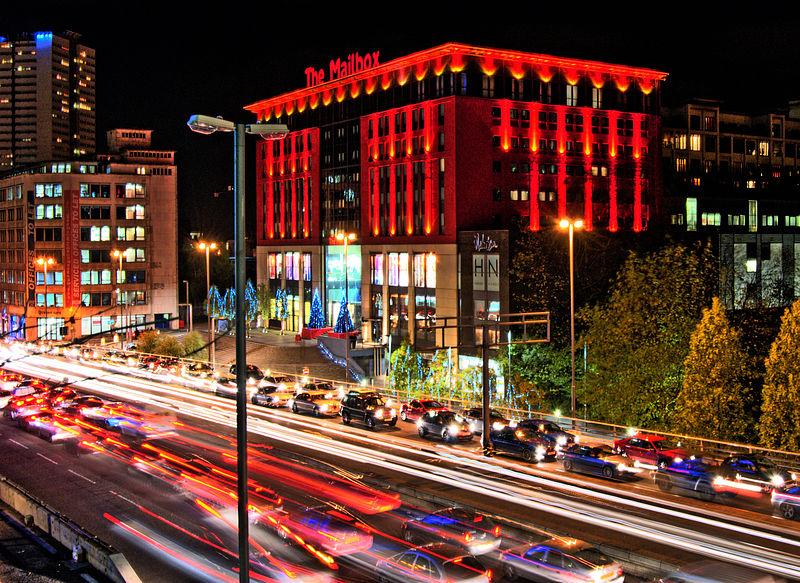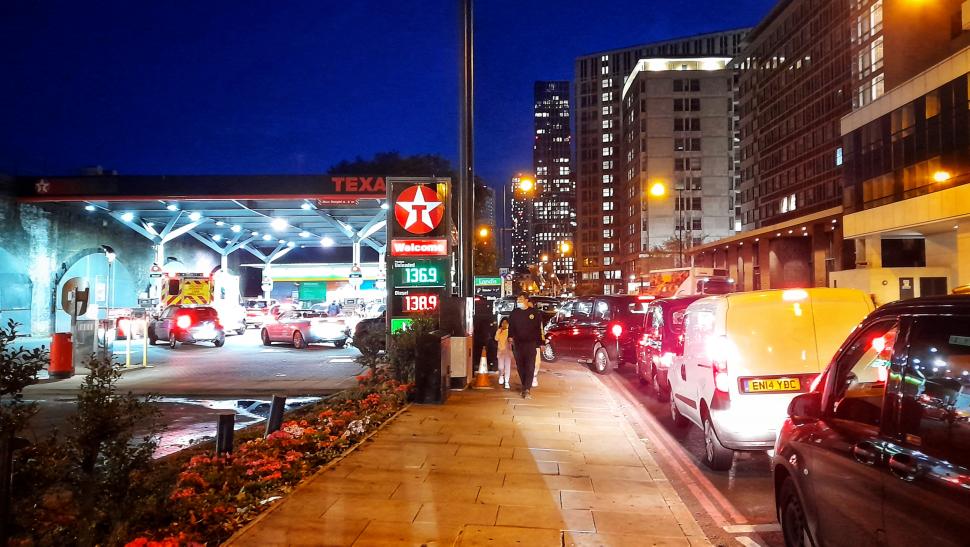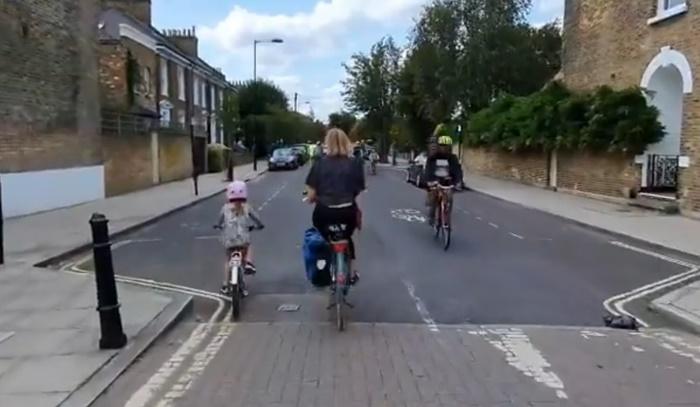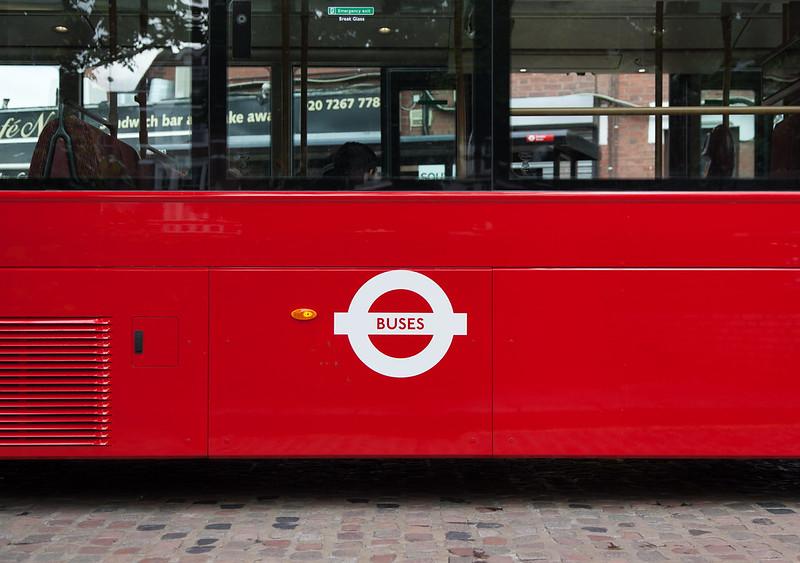- News
- Reviews
- Bikes
- Accessories
- Accessories - misc
- Computer mounts
- Bags
- Bar ends
- Bike bags & cases
- Bottle cages
- Bottles
- Cameras
- Car racks
- Child seats
- Computers
- Glasses
- GPS units
- Helmets
- Lights - front
- Lights - rear
- Lights - sets
- Locks
- Mirrors
- Mudguards
- Racks
- Pumps & CO2 inflators
- Puncture kits
- Reflectives
- Smart watches
- Stands and racks
- Trailers
- Clothing
- Components
- Bar tape & grips
- Bottom brackets
- Brake & gear cables
- Brake & STI levers
- Brake pads & spares
- Brakes
- Cassettes & freewheels
- Chains
- Chainsets & chainrings
- Derailleurs - front
- Derailleurs - rear
- Forks
- Gear levers & shifters
- Groupsets
- Handlebars & extensions
- Headsets
- Hubs
- Inner tubes
- Pedals
- Quick releases & skewers
- Saddles
- Seatposts
- Stems
- Wheels
- Tyres
- Health, fitness and nutrition
- Tools and workshop
- Miscellaneous
- Buyers Guides
- Features
- Forum
- Recommends
- Podcast
 Birmingham Mailbox and traffic (licensed CC BY-SA 2.0 by Bs)u10e01 on Wikimedia Commons)
Birmingham Mailbox and traffic (licensed CC BY-SA 2.0 by Bs)u10e01 on Wikimedia Commons)Weekend traffic now slower than rush hour as experts blame car journeys... but transport editor claims cycle lanes and LTNs contribute
This weekend The Times newspaper shared the news that the average speed of traffic in UK cities had slowed by up to 2.5mph in the three years since before the pandemic, with transport data firm Basemap's analysis showing drivers travelling at weekends take longer than during weekday rush hours.
The numbers showed that motorists in urban areas travelling between 7am and 7pm on weekends would take longer to complete their journeys than during the weekday rush hours of 7am to 9am and 4pm to 7pm as average speeds in London, Birmingham and Manchester have all dropped.
> "Incredibly simplistic" to blame cycle lanes for London being named world's most congested city
In Birmingham, the weekend reduction from 16.5mph in 2019 to 14.2mph in 2021 means average traffic speed is now 1.1mph slower at the weekends than during weekday rush hour.
The picture is mirrored in London and Manchester where weekend average speeds have reduced 2mph and 2.4mph respectively, and while transport editor Nicholas Hellen added LTNs and cycle lanes to the list of "causes" in his social media post sharing the article, the experts who contributed to the story disagree.
Weekend traffic now slower than rush-hour crawl
Urban journey times drop by up to 2.5mph since Covid
Causes: Car-led recovery, surge in Amazon deliveries, LTNs, 20mph limits, cycle lanes,
@AAPresident @createstreets @dannydorling https://t.co/bNcxUdA8yT
— Nicholas Hellen (@NicholasHellen) October 16, 2022
Danny Dorling, a professor of geography at Oxford said it was wrong to blame 20mph speed limits or LTNs.
"The changes to our road system, whether 20mph speed restrictions or low-traffic neighbourhoods, are far too small to account for this slowdown in speed," he told The Times.
"The big thing that has happened is that more people are trying to use their cars in different ways than before the pandemic. It does not take much of an increase to suddenly have this effect."
Equally, David Milner, the deputy director of Create Streets — a foundation which has influenced government planning policy — concluded that "private cars are an inefficient use of space in towns and cities".
The Times story ends with a quote from AA president Edmund King who suggests "quality park and ride or park and e-bike facilities" could help ease gridlocked cities that "will only push out more residents and commuters to the suburbs and beyond".
> Cycle more, drive less once pandemic ends, urges AA president
So, not much mention of cycle lanes or LTNs there, something plenty noticed after reading the tweet attributing slower traffic, in part, to policies making active travel safer.
Reading the article, it is evident to me that it is just Hellen’s assertion that LTNs/bike lanes/20 limits are “causes” of congestion - the experts quoted don’t say that, citing only post-pandemic resurgence of car use (displacing bus use) and explosive growth in courier vans. https://t.co/YAxtmNr1rN
— PaulM 🇮🇪🇫🇷🇨🇦🚲🐟🌻 (@Onebiskuit) October 17, 2022
“The changes to our road system, whether 20mph speed restrictions or low-traffic neighbourhoods, are far too small to account for this slowdown in speed.”
From the article.
— Ewan Chamings (@echamings) October 16, 2022
So what is the 'cause'? Transport editor Hellen notes "the roads have become busier as passengers initially shunned public transport and have not fully returned to it", adding rail travel still sits at 88 per cent of pre-pandemic levels, 91 per cent outside of London, and 80 per cent on the London Underground.
At the same time, van traffic has soared to 116 per cent of pre-pandemic levels in response to the increased demand for online shopping, while car traffic is at 96 per cent, according to the Department for Transport.
On the topic of getting people out of vehicles, a 2021 study showed people are most likely to cycle to work when traffic speeds on their route are below 20mph. Furthermore, a poll from March this year found that LTNs in Hackney had encouraged a quarter of residents to cycle more, while 30 per cent said they drive less.
Hellen's article also raised the issue of financial losses for bus network providers caused by slower speeds, with head of performance at Transport for London Nick Owen explaining a 1mph drop in the speed of bus journeys costing the authority about £200m a year due to passengers staying away.
University of Oxford professor Dorling added: "If buses can actually go at 20mph, the journey is much faster than if they were travelling on a road where the official speed limit is 30mph but congestion means that you're very often going under 10mph."
[Licensed CC BY-SA 3.0 by Tom Page on Flickr]
Last month, the chief executive of one of the UK's largest public transport companies, Go-Ahead Group, urged politicians to banish cars from urban roads to make cities cycling-friendly.
Christian Schreyer said: "The question is: is the road dedicated mainly to cars? Or is it dedicated to bicycles, and public transport and buses?"
He pointed out in the Netherlands: "Next to the bus you have your bicycle lane and then you have pedestrians. No one complains anymore. For me, there's no alternative if you want to, on the one hand, achieve the climate targets and on the other hand, you want to make cities attractive again."
Dan is the road.cc news editor and has spent the past four years writing stories and features, as well as (hopefully) keeping you entertained on the live blog. Having previously written about nearly every other sport under the sun for the Express, and the weird and wonderful world of non-league football for the Non-League Paper, Dan joined road.cc in 2020. Come the weekend you'll find him labouring up a hill, probably with a mouth full of jelly babies, or making a bonk-induced trip to a south of England petrol station... in search of more jelly babies.
Latest Comments
- Andrewbanshee 1 sec ago
A bit of mental gymnastics here https://www.eveningnews24.co.uk/news/24325747.betters-laws-cycling-stop-...
- LeadenSkies 8 min 23 sec ago
As someone whose mum is visually impaired and in her 80s, I feel able to comment here. She is occasionally startled by cyclists that she doesn't...
- lonpfrb 14 min 58 sec ago
Huge conflict conflict missed opportunity:...
- roadeo_123 1 hour 22 min ago
Exactly this. But you need to be fiurther. If my wheels are 50 cm from the kerb then 2m from the kerb is 1.5m from my wheels, which cannot be 1.5m...
- chrisonabike 1 hour 27 min ago
It's all about joined-up thinking and holistic health outcomes! If they'd not had that bright idea smokers might have been tempted to smoke closer...
- eburtthebike 1 hour 31 min ago
But then stories get shared a thousand times on social media.
- hawkinspeter 2 hours 35 min ago
AFAIK, their (Strava's) algorithm is to rely on other users flagging suspicious rides. What could be a useful feature is to enable users to...
- mjc2669 12 hours 54 min ago
Cable lock looped around frame down tube and bike carrier between roof rack fixing points works.. sometimes a bit of padding to stop any rattling....
- David9694 13 hours 20 min ago
Car crashes into The Wortwell Bell pub near Harleston https://www.edp24.co.uk/news/24329586.car-crashes-wortwell-bell-pub-near...



Add new comment
31 comments
Nah, I send the kids in the Range Rover Supercharger to do that. Well, its almost half a mile away so can't expect them to walk, what with all the traffic on the road. It wouldn't be safe!
Pages